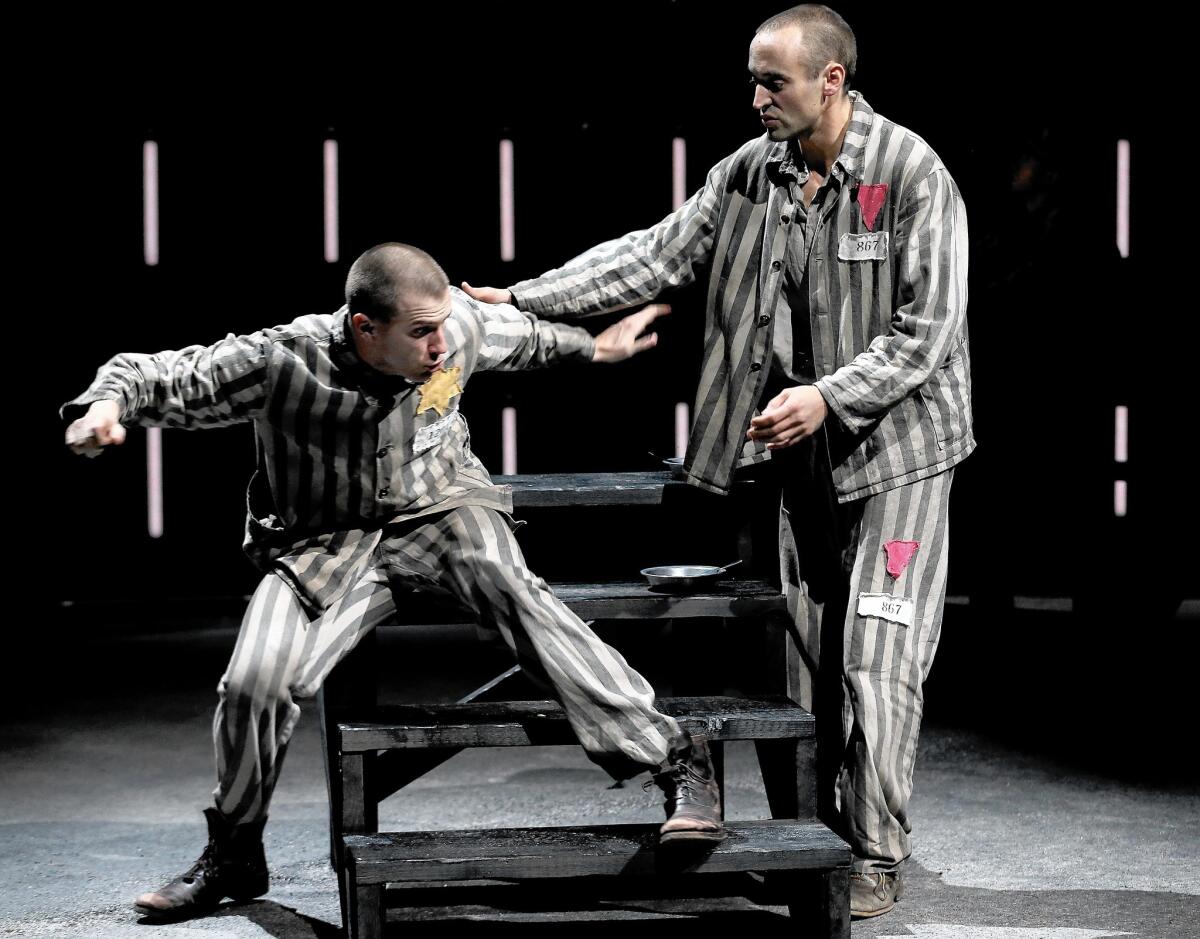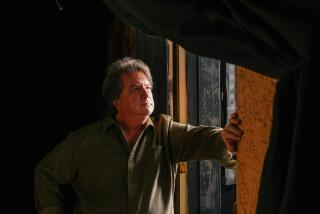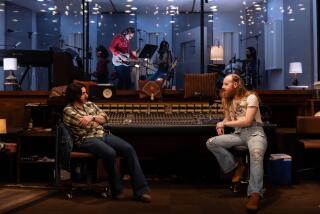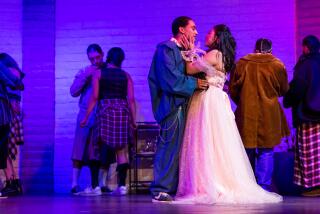In L.A. theater, Martin Luther King and privileged white men helped drive points home

“Identity politics” has an old-fashioned ring, the banner of the academic culture wars of the 1990s, but the conflicts over race, religion, sexuality, gender, nationality and, let us not forget in this new gilded age, class, have grown more fierce and frenzied in 2015.
Reflect on the image of the drowned Syrian boy washed up on a Turkish beach. Consider the sheer number of shocking videos of black men killed by police officers under questionable circumstances. Recall the standoff in Kentucky with the clerk who refused on religious grounds to issue marriage licenses for same-sex couples. Shudder at the bestial violence of ISIS, perverting Islam with black flags, beheadings and a wanton disregard for human life.
READ MORE: Charles McNulty’s 2015 theater highlights: Transformation and enduring power from L.A. to Broadway
Theater cannot compete with such harsh reality. But the stage this year has grappled with a fundamental source of the tension — the demonizing of difference that causes us to lose sight of our common humanity.
It was a salutary moment for a revival of playwright Martin Sherman’s gay Holocaust drama “Bent,” a play that dramatizes the horror of a human classification system in which certain groups are deemed subhuman, unworthy even of life. Moisés Kaufman’s unflinching production at the Mark Taper Forum depicted the way this type of hatred can seep into a victim’s sense of self. In the nightmarish context of a Nazi concentration camp, a character’s courageous assertion of his identity became an act of tragic defiance and searing moral beauty.
I’m not sure if anything moved me more this season than Anna Deavere Smith’s recitation of Rev. Martin Luther King Jr.’s “Letter From Birmingham Jail” in “Never Givin’ Up” at the Broad Stage. It wasn’t just the genius of King’s words communicating the moral imperative of the civil rights struggle but Smith’s urgent summoning of the sentiment. Through King she spoke to us of Ferguson, Staten Island, Baltimore, Charleston and all the other cities and towns where the lives of black men had been needlessly lost.
See the most-read stories in Entertainment this hour >>
The Fountain Theatre’s excellent production of Athol Fugard’s “The Painted Rocks at Revolver Creek” broadened our scope of these issues. This compact two-act play, set during and after apartheid, brings an Afrikaner woman and the black man who used to work on her farm as a boy into collision over the restoration of a dead black outsider artist’s final project. At stake isn’t the painting on the rock that had been effaced but the preservation of the memory of individual black lives long consigned to inferior status.
Two of this year’s more provocative plays were works about white families written by playwrights of color. Branden Jacobs-Jenkins’ “Appropriate” at the Mark Taper Forum and Young Jean Lee’s “Straight White Men” at the Kirk Douglas Theatre repurposed that most traditional of forms — the domestic drama.
In Jacobs-Jenkins’ case, it was to explore what often lies buried in these stories, the history of oppression upon which one group derives an advantage. In Lee’s case, it was to examine the meaning of privilege through the interaction of three grown sons and a father, all of whom are progressive in their politics and conscience-stricken about the benefits of their straight white male status.
Without compromising their critical perspectives, these writers extended empathy to characters who weren’t always capable of returning the favor. Satire didn’t preclude sympathy. For playwrights, performers and theatergoers alike, imagining the other afforded the opportunity to get better acquainted with oneself.
Art cannot change the world, but it can cultivate the capacity for identification that is a bulwark against the dehumanizing tendencies of divided societies.
The crisis of climate change is forcing some of us to reconsider what it means to be human. Divisions that people have died for seem ludicrously superficial when you consider the environmental threats imperiling us all.
One production that briefly passed through REDCAT this year powerfully brought this home: “The Great War,” by the Dutch theater company Hotel Modern and composer Arthur Sauer, created a live animation film to convey the ghastly man-made hell of trench warfare. Water and dirt mixed with the body parts of toy soldiers and debris of the miniature encampments to create the effect on-screen of a muddy ruin of “advanced” civilization.
A final series of images showed time passing on this bloodstained field. Seasons changed and the corpses sank deeper. In time this unprecedented carnage was covered over by a young forest oblivious to the borders these unfortunate men sacrificed their lives for.
Twitter: @CharlesMcnulty
More to Read
The biggest entertainment stories
Get our big stories about Hollywood, film, television, music, arts, culture and more right in your inbox as soon as they publish.
You may occasionally receive promotional content from the Los Angeles Times.







